Categorization skills Normal Worksheets for Ages 4-6
17 filtered results
-
From - To
Empower young minds with our Categorization Skills Normal Worksheets designed for ages 4-6! These engaging worksheets from Kids Academy help children develop essential sorting and grouping skills that foster critical thinking and cognitive development. Our expertly crafted activities guide kids through recognizing patterns, similarities, and differences among objects. Each worksheet is tailored to stimulate curiosity and cultivate a love for learning. Perfect for home or classroom use, our worksheets support foundational learning and prepare children for future academic success. Download today to boost your child's categorization skills in a fun and interactive way!
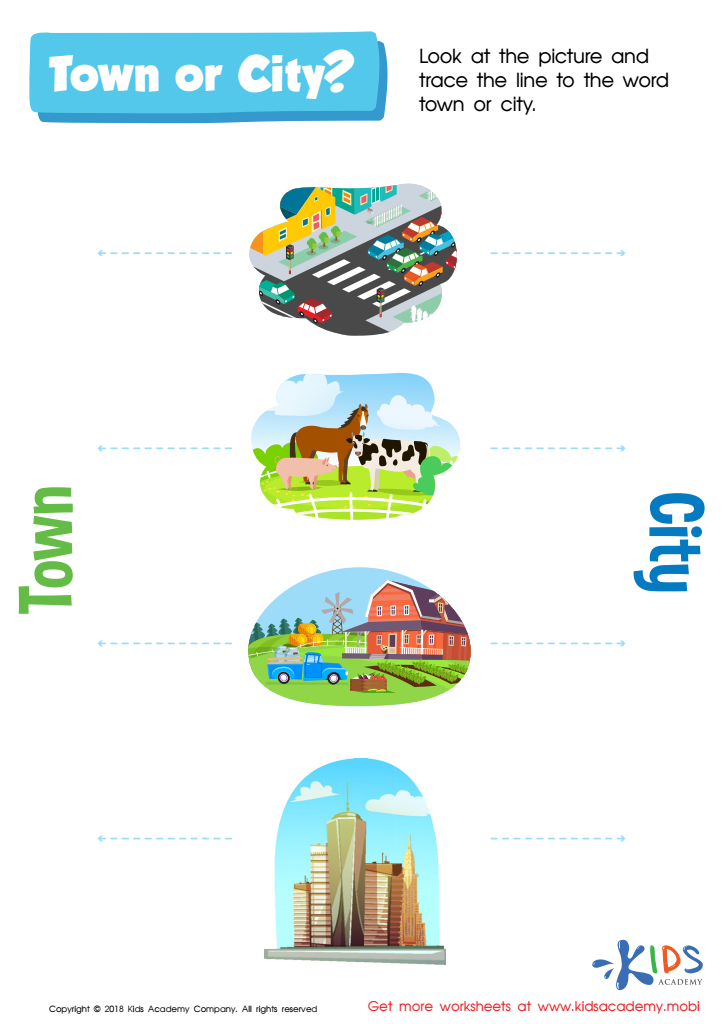

Town or City? Worksheet
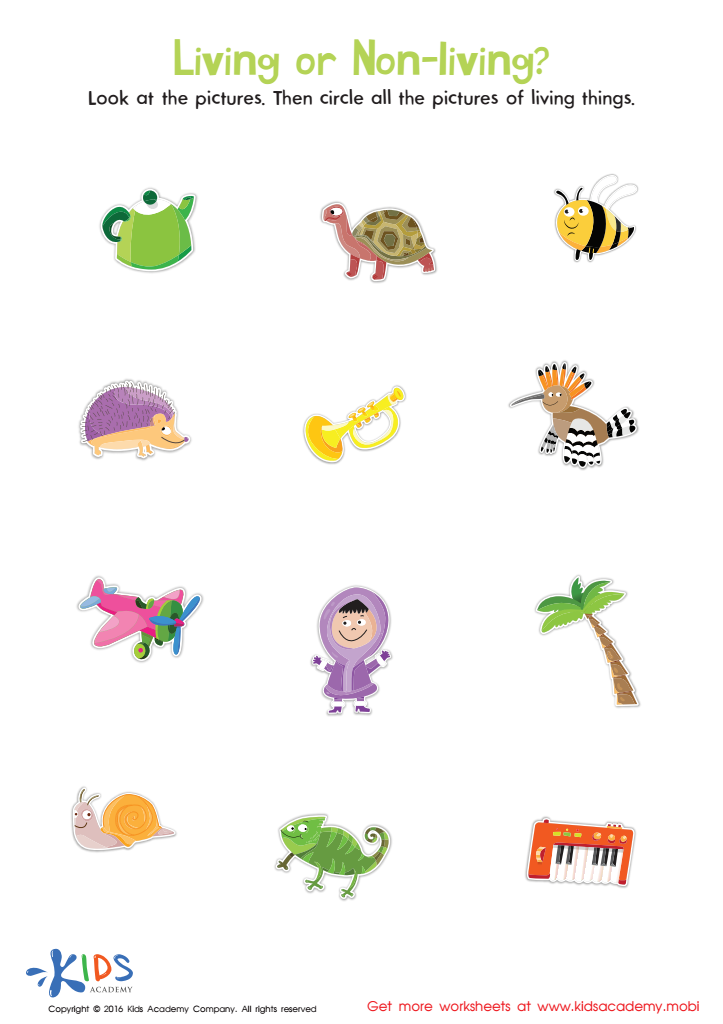

Identifying Living and Non–living Things Sorting Worksheet
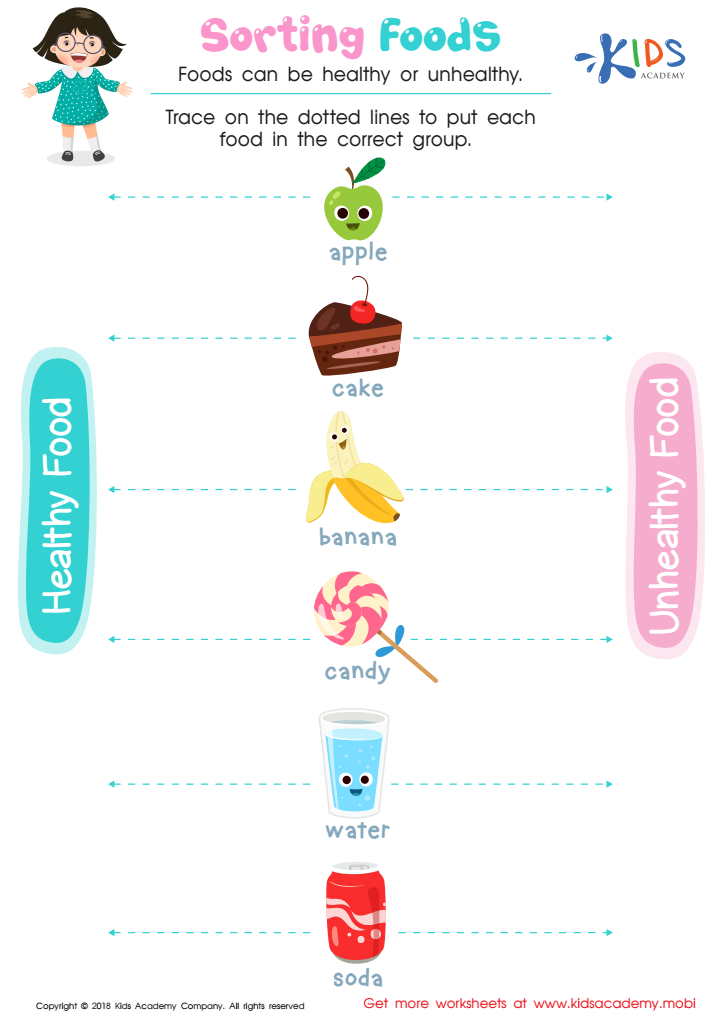

Sorting Food Worksheet


Sorting Animals in 3 Groups Worksheet
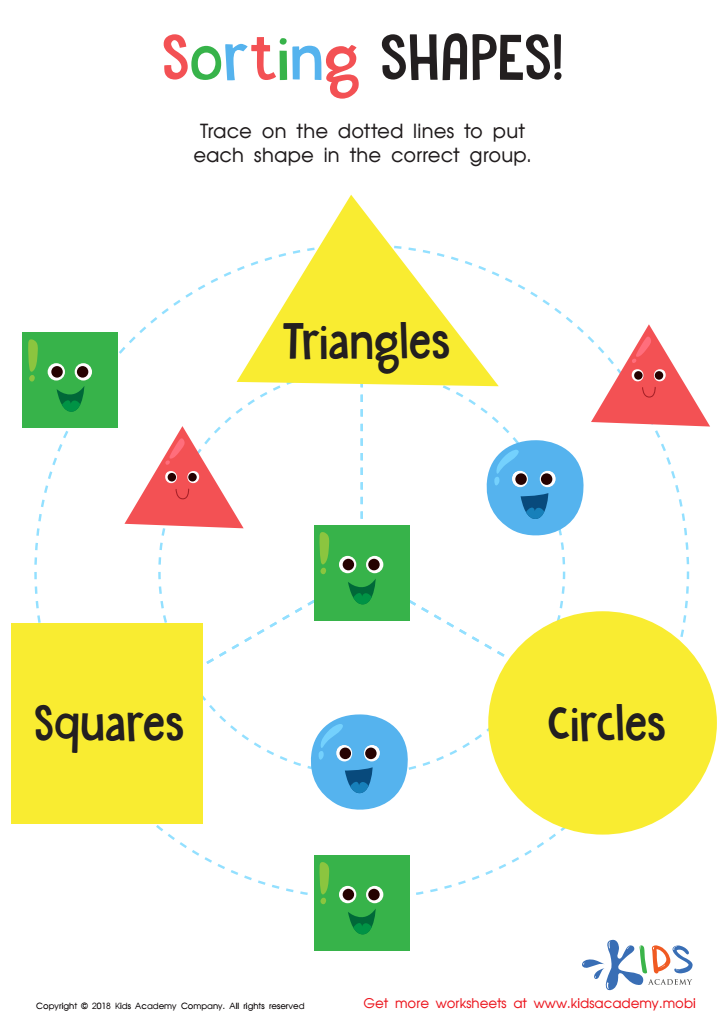

Sorting Shapes - Part 3 Worksheet
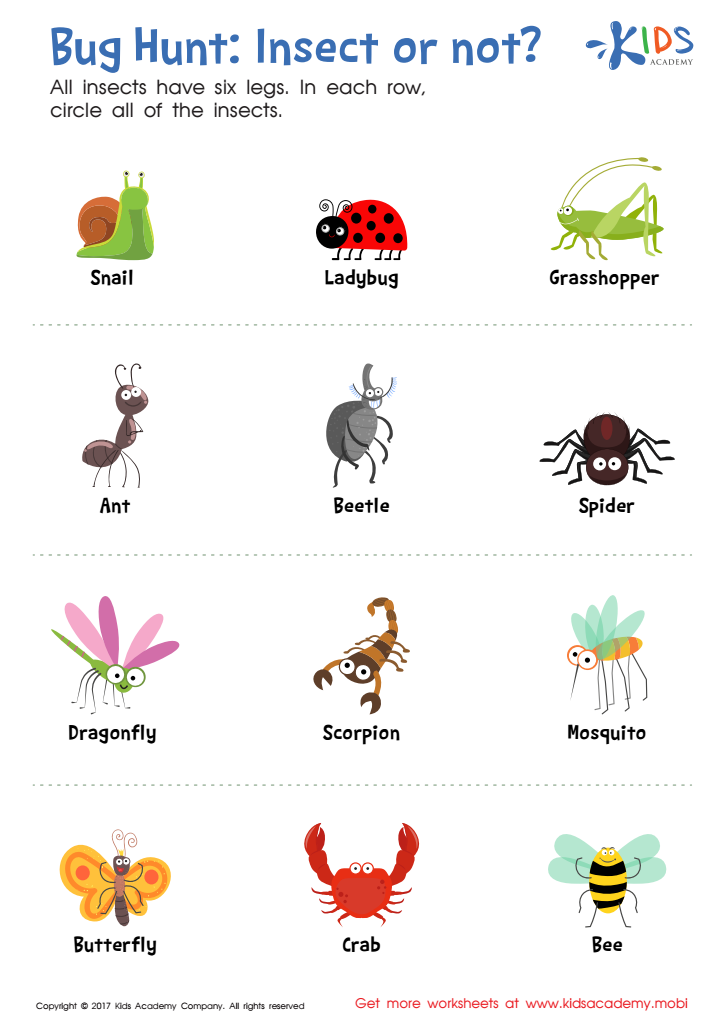

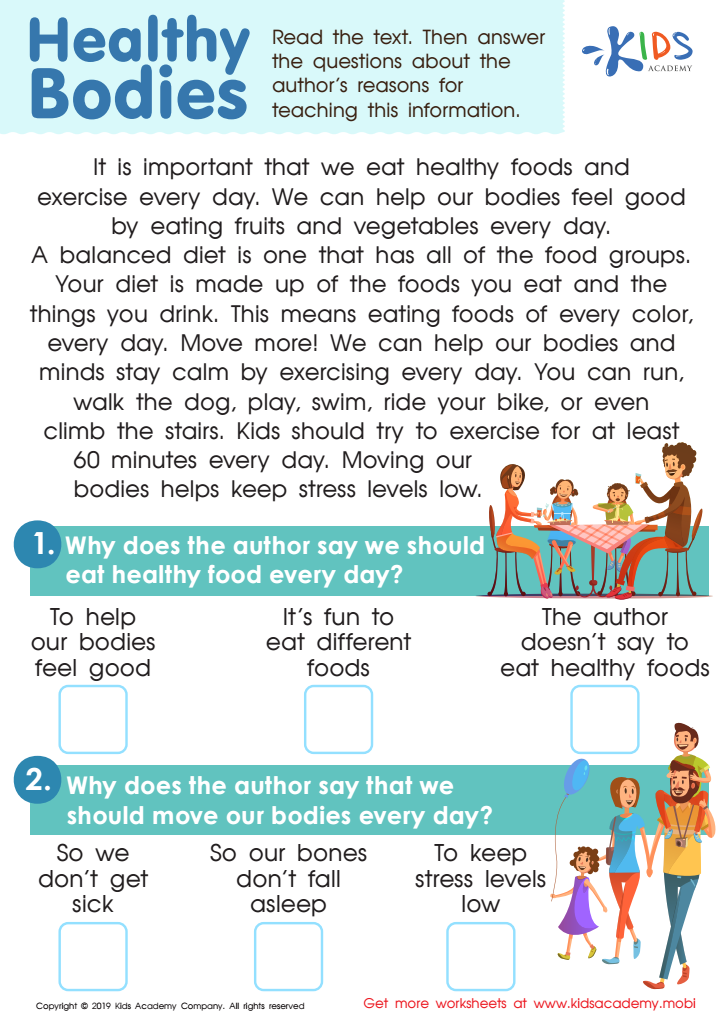

Healthy Bodies Worksheet


Matching: Classifying Toys by Size Worksheet
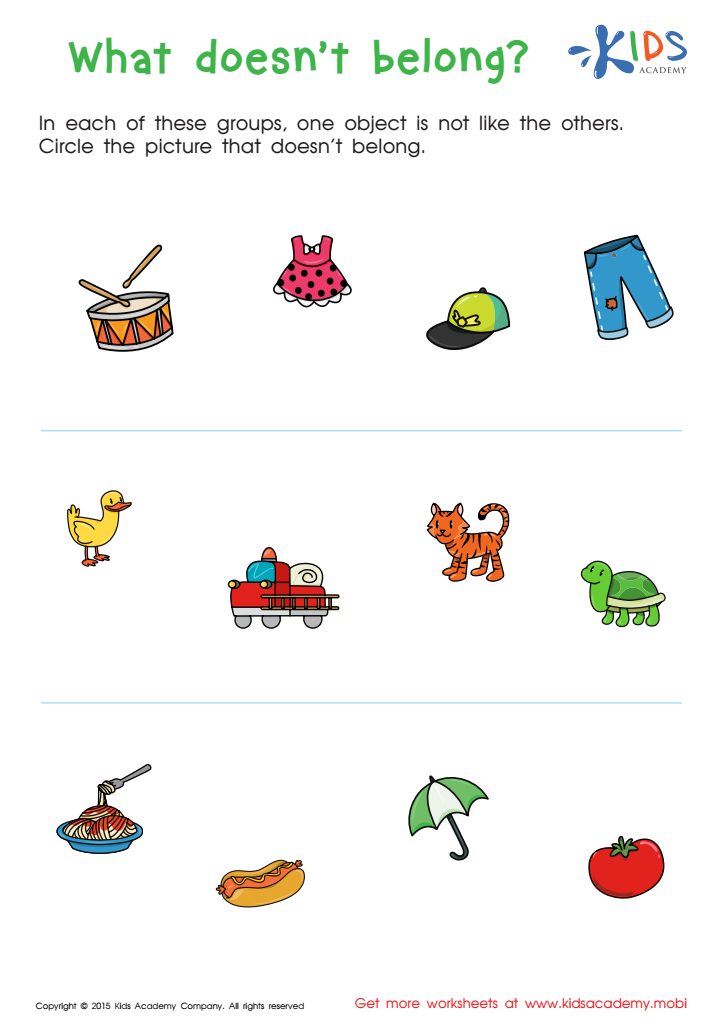

First Words: What Doesn't Belong Worksheet
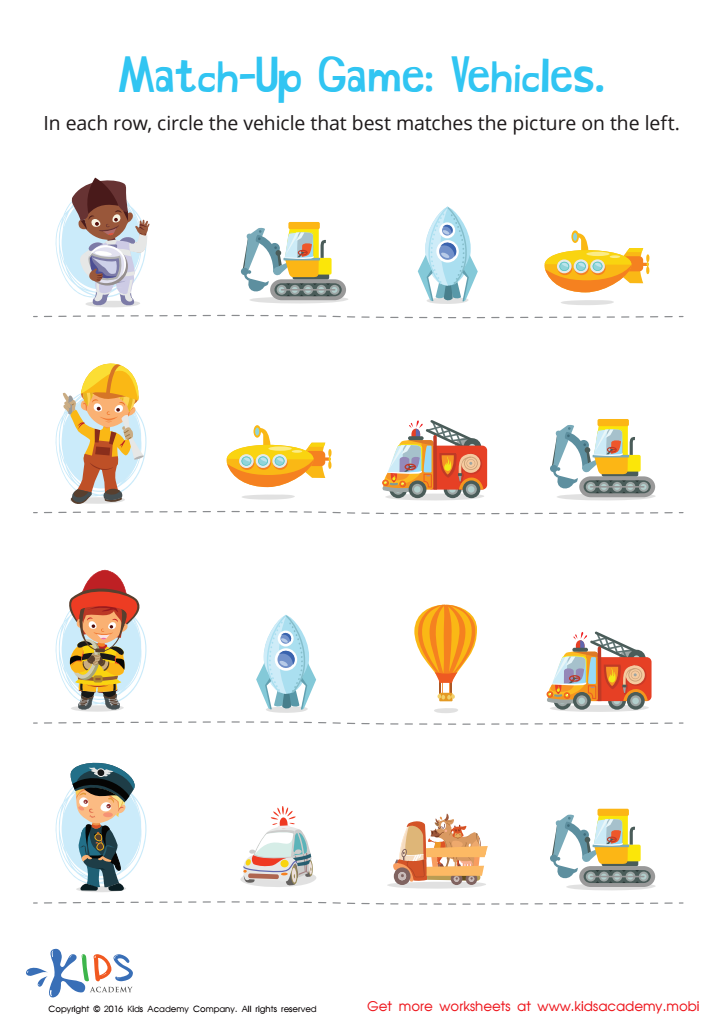

Vehicles Worksheet
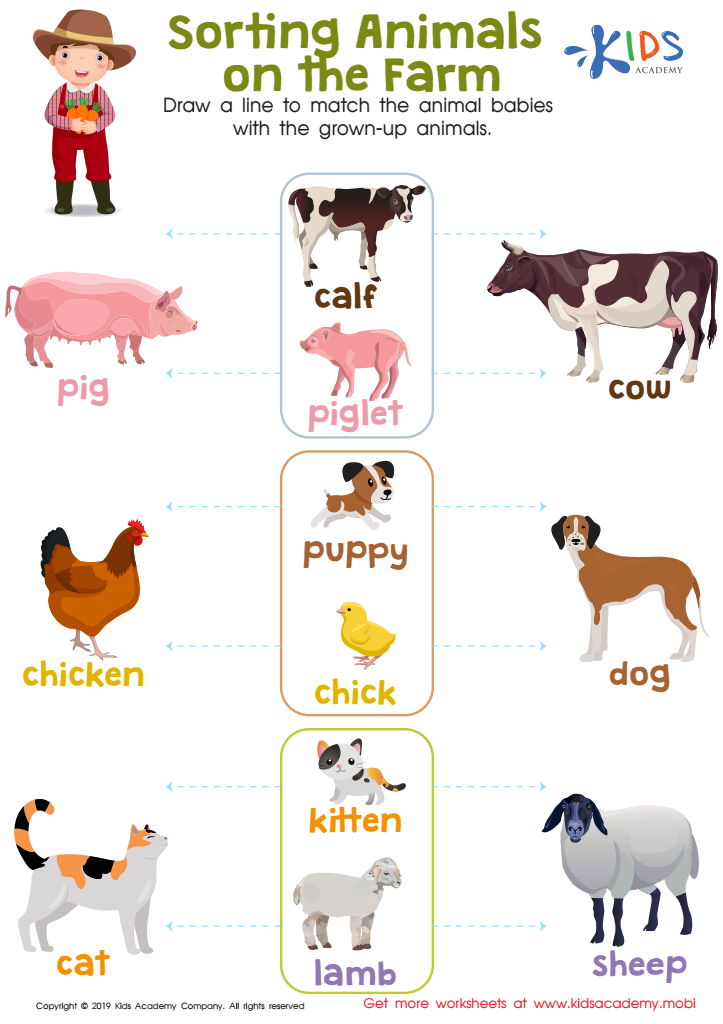

Sorting Animals on the Farm Worksheet


Logic Game Sorting Worksheet
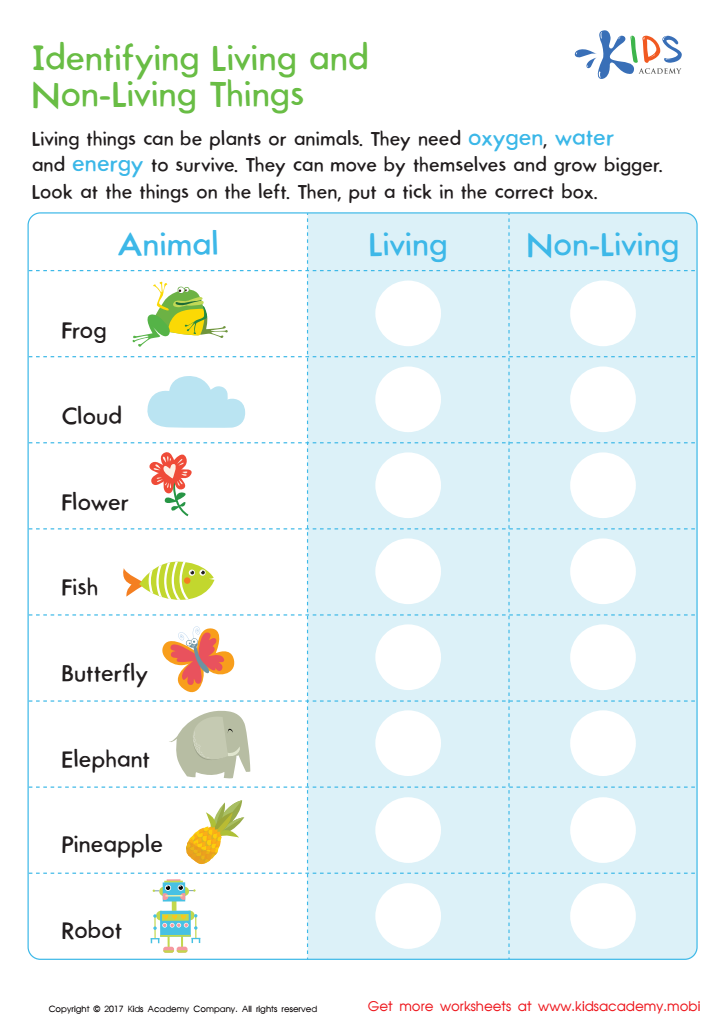

Identifying Living or Non–living Worksheet
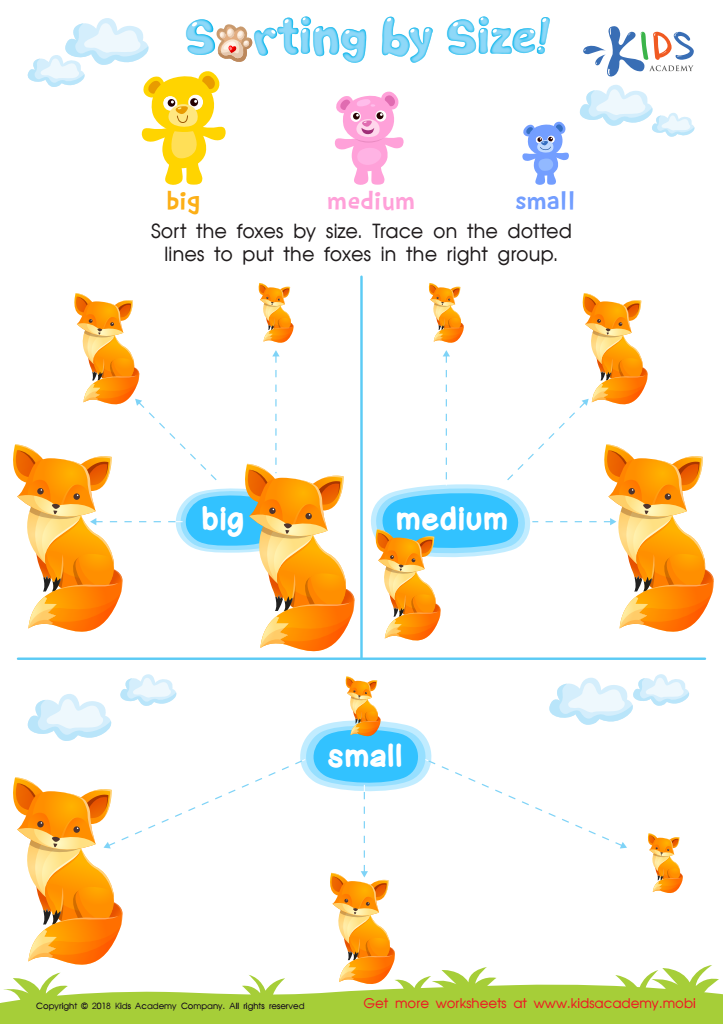

Sorting by Size Worksheet
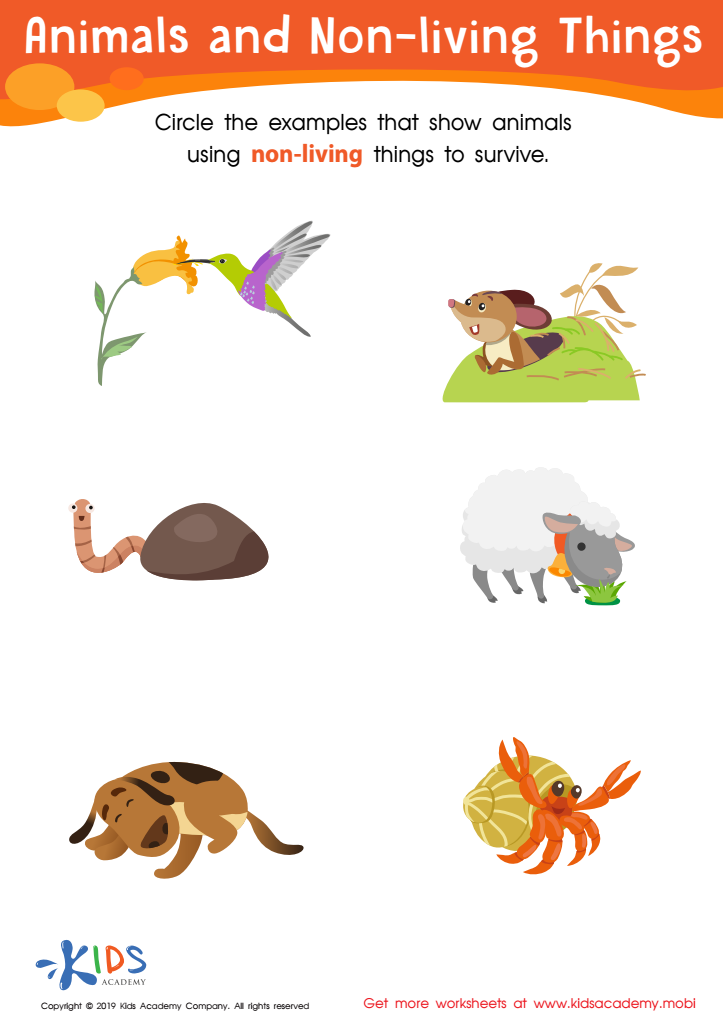

Animals and Non-Living Things Worksheet
Categorization skills are essential cognitive abilities that develop in children between the ages of 4 to 6. These skills involve grouping objects, ideas, or information based on shared characteristics, which is a foundational aspect of logical thinking and learning. Parents and teachers should place high importance on these skills for several reasons.
Firstly, categorization helps children organize their world, making sense of their environment more efficiently. By grouping similar objects together (e.g., animals, fruits, or shapes), children learn to identify patterns and relationships, fostering critical thinking. This cognitive structure aids in memory retention and retrieval, enabling kids to recall information more effectively.
Secondly, these skills are vital for academic success. As children progress in their education, subjects like math and science heavily rely on the ability to categorize and differentiate. For example, understanding math concepts like sorting, counting, and classifying shapes requires strong categorization skills.
Finally, social interaction and communication benefit from categorization abilities. These skills enable children to understand and convey information more coherently. Recognizing social cues and grouping them appropriately helps in developing empathy and effective communication with peers and adults.
Overall, supporting the development of categorization skills in early childhood prepares children for future learning experiences, boosts confidence, and enhances cognitive and social abilities, making it an essential focus for both parents and teachers.
 Assign to My Students
Assign to My Students

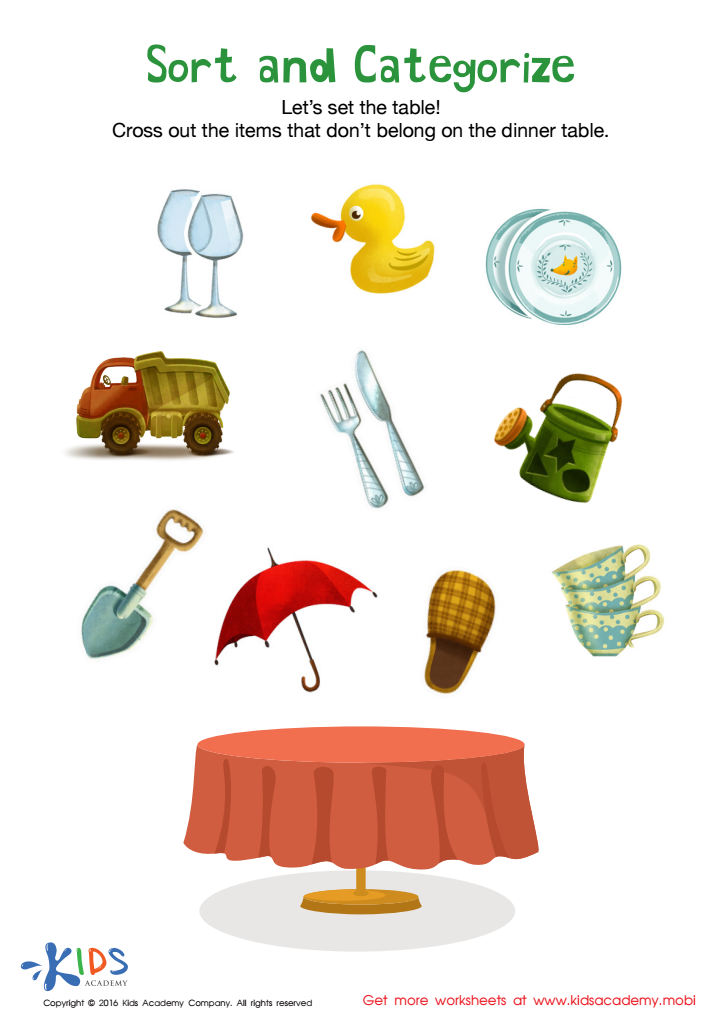

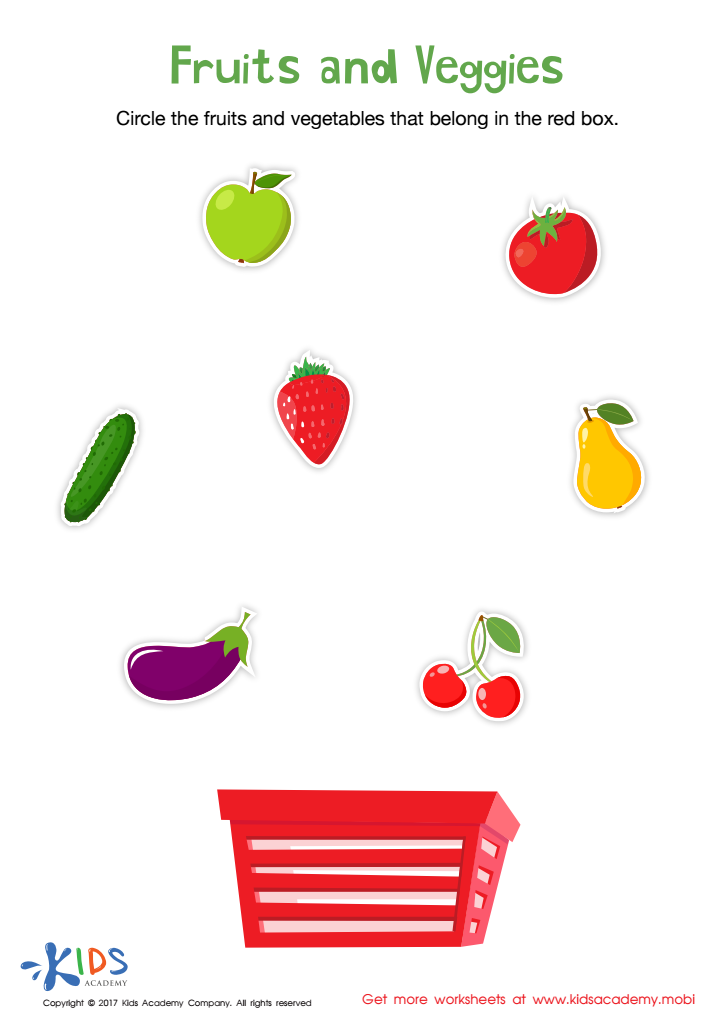







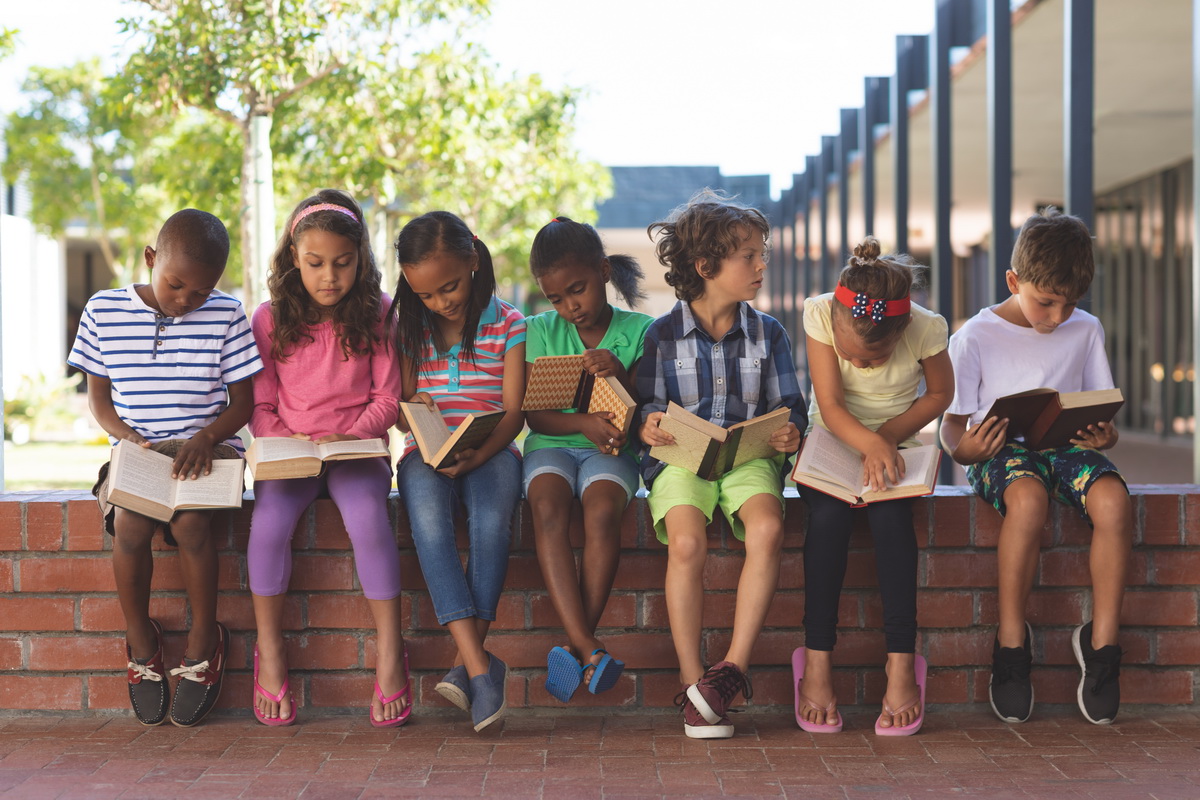

.jpg)









